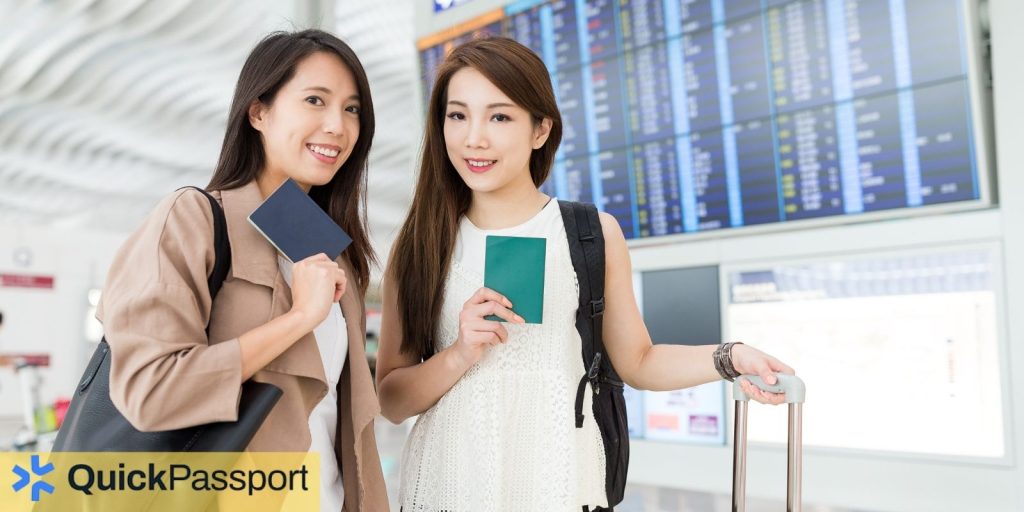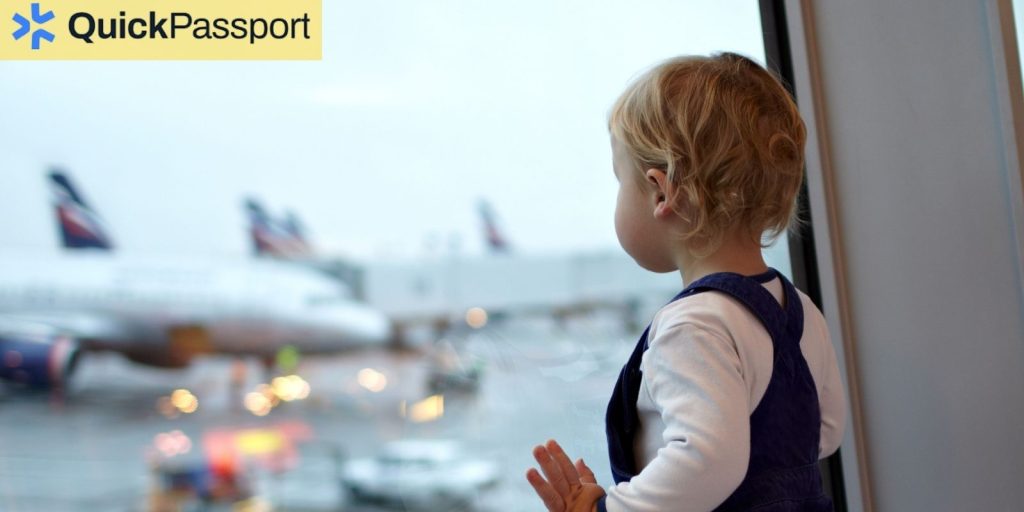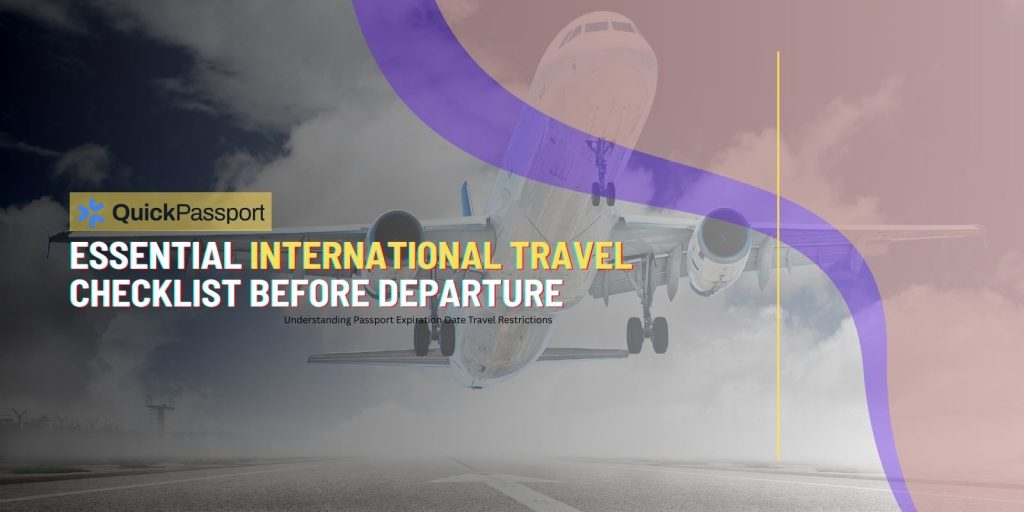International travel requires meticulous preparation to ensure smooth border crossings, compliance with foreign regulations, and protection against unforeseen circumstances abroad. A comprehensive pre-departure checklist serves as your roadmap for successful international travel, covering everything from essential documents and health requirements to financial preparations and safety considerations. Whether you’re embarking on your first international journey or you’re a seasoned traveler, following a systematic approach to travel preparation prevents costly oversights and travel disruptions.
Overview
Creating and following a detailed international travel checklist transforms potentially stressful travel preparation into an organized, manageable process. This comprehensive guide covers all essential pre-departure preparations, from securing proper travel documents and understanding visa requirements to preparing for health emergencies and ensuring financial accessibility abroad. We’ll examine critical timing considerations for document processing, health preparation requirements, and practical steps for protecting yourself and your belongings during international travel. Our checklist addresses both mandatory requirements and recommended preparations that enhance travel safety and convenience, ensuring you’re fully prepared for departure regardless of your destination or travel duration.
Key Takeaways
- Valid passport with at least six months remaining validity is required for most international destinations
- Visa requirements vary by destination and citizenship and often require advance processing time
- Health preparations including vaccinations and medications should begin weeks before departure
- Financial preparations including currency exchange and banking notifications prevent access issues abroad
- Travel insurance provides essential protection against medical emergencies and trip disruptions
- Document copies and emergency contacts serve as crucial backup resources during travel
Essential Travel Documents and Identification
Your passport represents the most critical document for international travel, serving as both identification and proof of citizenship. Verify that your passport remains valid for at least six months beyond your planned return date, as many countries enforce this requirement for entry. Countries including Thailand, Indonesia, and most European nations require this extended validity period to ensure travelers can complete their visits without documentation expiration.

Check your passport’s available blank pages for entry and exit stamps. Many destinations require at least two to four blank pages for official stamps and visas. If your passport lacks sufficient blank pages, consider adding pages if your passport type allows, or renew your passport before departure to avoid entry complications.
Obtain necessary visas well in advance of your departure date.Visa requirements vary significantly by destination and your citizenship status. Some countries offer visa-on-arrival services, while others require advance applications that can take weeks or months to process. Research your specific destination’s requirements and apply early to accommodate processing delays.
Ensure your driver’s license remains current if you plan to rent vehicles abroad. Many countries accept US driver’s licenses for short-term visitors, but some require International Driving Permits. Obtain an International Driving Permit through AAA or other authorized agencies before departure if your destination requires this additional documentation.
Health Preparations and Medical Requirements
Begin health preparations at least four to six weeks before international departure to allow time for vaccinations and medication adjustments. Schedule a consultation with a travel medicine specialist or your healthcare provider to discuss destination-specific health risks and required immunizations.
Research vaccination requirements for your specific destinations. Some countries require proof of yellow fever vaccination for entry, particularly when traveling from or through endemic areas. Other recommended vaccinations may include hepatitis A and B, typhoid, Japanese encephalitis, or meningitis depending on your destination and planned activities.
Obtain sufficient quantities of prescription medications for your entire trip plus additional supplies for unexpected delays. Request prescription medications in their original pharmacy containers with clear labeling to avoid customs complications. Carry a letter from your physician describing your medical conditions and prescribed treatments, especially for controlled substances or injectable medications.
Consider purchasing comprehensive travel health insurance that covers medical emergencies, medical evacuation, and repatriation costs. Standard health insurance policies often provide limited or no coverage for international medical expenses, leaving travelers vulnerable to substantial out-of-pocket costs for emergency treatment abroad.
Financial Preparations and Currency Considerations
Notify your bank and credit card companies about your international travel plans to prevent fraud-related account freezes. Provide specific travel dates and destination countries to ensure your cards remain accessible throughout your trip. Request contact information for international customer service lines in case you need assistance while abroad.
Research currency exchange options and current exchange rates for your destinations. Consider exchanging a small amount of local currency before departure for immediate expenses like transportation and tips upon arrival. Compare exchange rates at banks, currency exchange services, and your destination to determine the most cost-effective exchange strategy.
Verify that your debit and credit cards function internationally and understand associated fees for foreign transactions. Many banks charge foreign transaction fees ranging from one to three percent of purchase amounts. Consider obtaining cards with no foreign transaction fees if you travel internationally frequently.
Establish multiple payment methods for redundancy and security. Carry a combination of cash, debit cards, and credit cards from different financial institutions to ensure access to funds if one method becomes unavailable. Avoid carrying large amounts of cash, but maintain enough local currency for situations where cards aren’t accepted.
Technology and Communication Setup
Verify that your mobile phone will function at your international destinations and understand roaming charges from your carrier. Contact your mobile service provider to discuss international roaming plans or temporary international service additions that may reduce costs compared to standard roaming rates.

Download essential travel applications before departure, including offline maps, translation tools, currency converters, and transportation apps specific to your destinations. Test these applications to ensure they function properly and familiarize yourself with their features before relying on them abroad.
Ensure your electronic devices are compatible with electrical systems in your destination countries. Research plug types and voltage requirements, and purchase appropriate adapters and voltage converters if necessary. Universal travel adapters work for most destinations but may not handle high-power devices like hair dryers or laptop chargers.
Create digital copies of important documents and store them securely in cloud-based services accessible from any internet connection. Include copies of your passport, visa pages, driver’s license, travel insurance policy, and emergency contact information. Email copies to yourself as an additional backup method.
Accommodation and Transportation Arrangements
Confirm all accommodation reservations and understand cancellation policies for your bookings. Print or save digital confirmations with contact information, addresses, and check-in procedures. Research transportation options from airports to your accommodations and consider booking airport transfers in advance for unfamiliar destinations.
Verify transportation arrangements for your entire itinerary, including domestic flights, train reservations, and rental car bookings. Confirm departure times, terminal locations, and any requirements for reconfirmation. Research transportation strikes or disruptions that might affect your travel dates.
Research local transportation systems and payment methods for your destinations. Many cities require specific cards or payment methods for public transportation. Understanding these systems in advance prevents confusion and delays when navigating unfamiliar cities.
Consider registering with your country’s embassy or consulate at your destination through programs like the State Department’s Smart Traveler Enrollment Program (STEP). Registration provides important safety information and facilitates communication with authorities in case of emergencies or natural disasters.
Safety and Security Preparations
Research current safety conditions and travel advisories for your destinations through official government sources. TheState Department’s travel advisories provide current information about security threats, health risks, and other conditions that might affect travelers.
Develop emergency action plans including embassy contact information, local emergency services numbers, and procedures for contacting family or employers in case of emergencies. Share your itinerary with trusted contacts and establish regular check-in schedules for longer trips.
Secure your home before departure by arranging mail and package holds, setting lighting timers, and informing trusted neighbors about your absence. Avoid posting travel plans on social media until after your return to prevent advertising an empty residence.
Research local laws and customs that might affect your behavior abroad. Understanding cultural norms, dress codes, and legal restrictions helps avoid unintentional violations that could result in fines, detention, or other complications during your travels.
Packing Essentials and Restrictions
Research baggage restrictions and prohibited items for your airlines and destinations. International flights often have different weight limits and size restrictions compared to domestic travel. Some destinations prohibit items that are legal in the United States, including certain medications, electronics, or food products.

Pack essential medications, documents, and valuable items in carry-on luggage to ensure access if checked baggage is delayed or lost. Include at least one complete change of clothing in your carry-on for extended flights or potential baggage delays.
Consider climate and seasonal variations at your destinations when selecting clothing and accessories. Research typical weather patterns for your travel dates and pack appropriate clothing for expected conditions. Include versatile items that can be layered or mixed to create different outfit combinations.
Prepare a basic first aid kit with band-aids, pain relievers, anti-diarrheal medication, and any personal medical supplies you might need. Include sunscreen, insect repellent, and hand sanitizer appropriate for your destinations and planned activities.
Final Pre-Departure Tasks
Complete online check-in for all flights 24 hours before departure when possible. Verify seat assignments, meal preferences, and any special service requests. Download boarding passes to your mobile device and print backup copies for redundancy.
Confirm weather conditions and potential travel disruptions for your departure day and initial destination. Monitor flight status and consider alternative transportation or accommodation arrangements if delays seem likely. Allow extra time for international departures due to additional security and documentation procedures.
Verify that all travel documents are easily accessible in your carry-on luggage. Organize documents in a dedicated travel folder or document organizer to expedite airport procedures and border crossings. Include pen for completing customs forms and other required paperwork.
Set up automatic bill payments or arrange for someone to handle financial obligations during your absence. Ensure important payments like rent, utilities, and credit cards are scheduled or managed to avoid late fees or service interruptions while traveling.
Common Questions About International Travel Checklist Before Departure
How far in advance should I start preparing for international travel?
Begin preparations at least 8-12 weeks before departure for complex itineraries or destinations requiring visas and vaccinations. Simple trips to visa-free destinations may require only 4-6 weeks of preparation time, but earlier planning always provides more options and reduces stress.
What documents should I carry while traveling internationally?
Always carry your valid passport, visa pages, travel insurance documentation, emergency contact information, and copies of important documents. Include prescription medication letters, driver’s license for car rentals, and any special permits required for your activities or destinations.
Do I need travel insurance for international trips?
Travel insurance is highly recommended for international travel to cover medical emergencies, trip cancellations, baggage loss, and emergency evacuation costs. Standard health insurance often provides limited international coverage, making travel insurance essential protection for overseas travel.
How much cash should I carry for international travel?
Carry enough local currency for immediate needs like transportation and tips, typically $100-200 equivalent depending on your destination. Rely primarily on cards for major expenses, but maintain emergency cash reserves for situations where cards aren’t accepted.
What vaccinations do I need for international travel?
Required vaccinations depend on your specific destinations and personal health history. Consult with a travel medicine specialist or your healthcare provider at least 4-6 weeks before departure to determine appropriate immunizations for your itinerary.
Should I notify my bank about international travel plans?
Yes, always notify banks and credit card companies about international travel to prevent fraud-related account freezes. Provide specific travel dates and destination countries, and request international customer service contact information for emergencies.
How do I handle prescription medications during international travel?
Carry medications in original pharmacy containers with clear labeling, bring extra supplies for delays, and obtain physician letters describing your conditions and treatments. Research destination regulations for controlled substances or restricted medications.
What should I do if my passport expires soon?
Renew your passport if it expires within six months of your planned return date, as many countries require this extended validity. Passport renewal can take several weeks, so begin the process early to avoid travel disruptions.
How can I stay safe while traveling internationally?
Research current safety conditions, register with your embassy, share itineraries with trusted contacts, and maintain situational awareness. Avoid displaying expensive items, stay in well-lit public areas, and trust your instincts about potentially dangerous situations.
What technology preparations should I make for international travel?
Verify phone compatibility and roaming charges, download offline maps and translation apps, research electrical adapter requirements, and create digital document backups. Test all applications before departure to ensure proper functionality abroad.
Ensuring Smooth International Travel
Thorough preparation using a comprehensive international travel checklist transforms complex travel logistics into manageable tasks, ensuring you’re ready for departure with confidence and peace of mind. While international travel requires more preparation than domestic trips, systematic planning prevents costly oversights and enhances your travel experience from departure through return.
The investment in proper preparation pays dividends through avoided complications, reduced stress, and enhanced safety throughout your international journey. From ensuring valid travel documents to preparing for health emergencies and financial accessibility abroad, each checklist item contributes to successful travel outcomes.
QuickPassport Denver understands the complexities of international travel preparation and provides expert guidance for all your travel document needs. Whether you need expedited passport processing, assistance with renewal requirements, or guidance on travel document timing, our experienced team ensures your documentation is ready for international departure according to your travel timeline.






